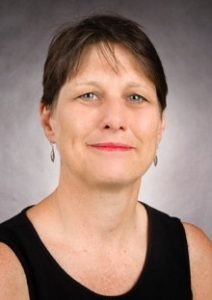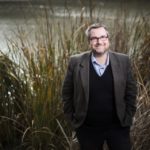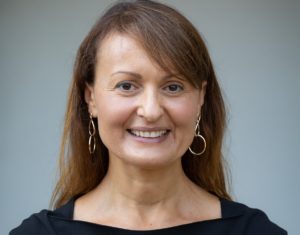
Professor Briony Forbes is part of an international team working on a potential new treatment for diabetes, while other recent Flinders University successes include inventing the words of the future, and the inclusion of a chapter in an international journal on climate change.
Global publication for better glucose control

Professor Briony Forbes from the College of Medicine and Public Health was last week part of an international team that published new research in the prestigious Nature Chemical Biology journal. These researchers have used clues from nature to develop novel insulin analogues for the treatment of Type 1 and Type 2 diabetes.
Using the features of an insulin found in a cone snail venom (Conus geographus venom insulin Con-Ins K1), the team has developed a humanised form that has a novel mode of action and works ultra-fast. This is highly desirable for patients using pump delivery and will provide better blood glucose control after a meal.
The paper – ‘Symmetric and asymmetric receptor conformation continuum induced by a new insulin’ – can be read here.
Inventing the words of the future

Through using etymology and the formation of words to create new fictional worlds, Associate Professor Alice Gorman from the College of Humanities, Arts and Social Sciences will explore the topic of ‘Futurolinguistics’ in a fascinating Writers SA workshop on 25 June.
Working in small groups, participants will take everyday words, re-invent them, and explore the future (or past) society which these new words can describe. The workshop is suitable for those interested in storytelling, speculative or science fiction, or who just love playing with words.
This week, Associated Professor Gorman has also chatted to the Space Connect podcast about her current project on the International Space Station and the space debris crisis.
International journal highlights impacts of climate change

The global impact of climate change on oceans and coastal ecosystems are under the microscope thanks to leading climate and ecosystem experts, including Flinders’ Professor Craig Simmons. He has worked with co-authors to write a chapter for the Intergovernmental Panel on Climate Change (IPCC) Sixth Assessment Report – Working Group 2. Impacts, Adaptation and Vulnerability.
The IPCC is the international body for assessing the science related to climate change. IPCC assessments provide a scientific basis for governments at all levels to develop climate-related policies, and these underpin negotiations at the UN Climate Conference – the United Nations Framework Convention on Climate Change (UNFCCC).
The Panel was jointly awarded the Nobel Peace Prize in 2007, along with former U.S. Vice-President Al Gore, “for their efforts to build up and disseminate greater knowledge about man-made climate change, and to lay the foundations for the measures that are needed to counteract such change”.
Defending gender equity in research funding

Professor Billie Professor Bonevski from the College of Medicine and Public Health was among leading Australian researchers who had an article published by Nature that applauded a decision by a powerful research funder to bar academics at the University of Melbourne from winning the foundation’s prestigious million-dollar fellowships over concerns about gender and diversity.
The decision, announced by the Snow Medical Research Foundation on 7 March, comes after the University of Melbourne released a picture of six white men — but no women or people of colour — receiving honorary degrees, one of the university’s highest accolades, in a ceremony on 28 February.
Professor Bonevski and other researchers told Nature that the hard line from the foundation — Snow medical is Australia’s largest philanthropic funder of medical research — could prompt universities to tackle gender inequality more aggressively. “The conversations around gender equity have been going on for so long, it’s exciting that someone’s gone that extra step,” says Professor Bonevski. “For a lot of people in academia, this is viewed as ‘finally — a shock to the system’.”
The full article in Nature can be read here: doi: https://doi.org/10.1038/d41586-022-00751-x

